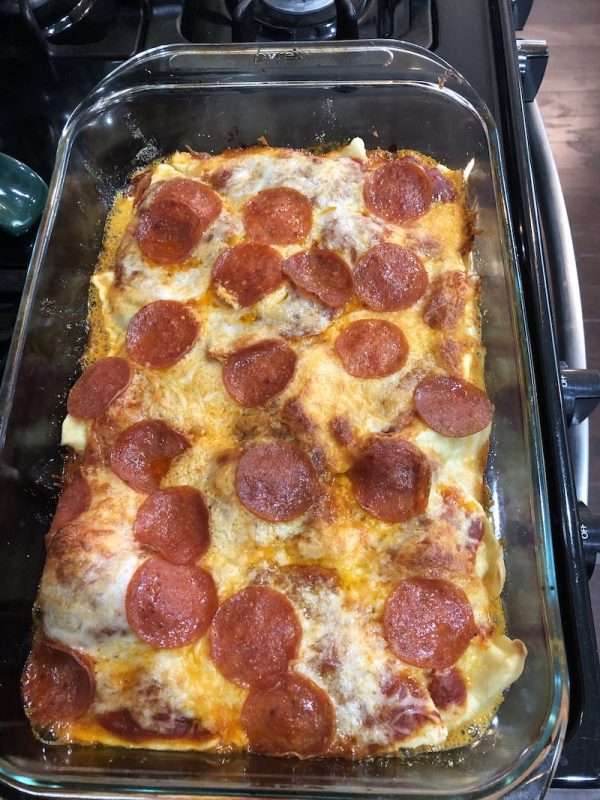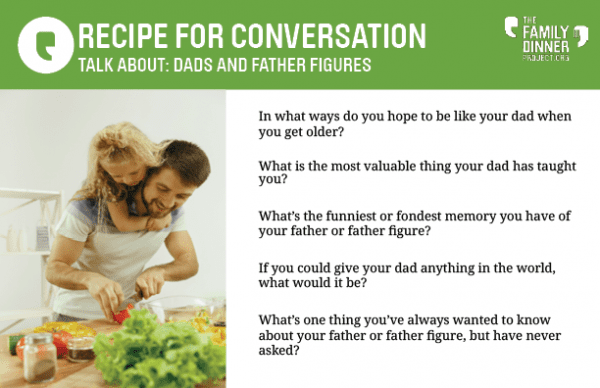Newsletter: June 2022
Sharing the Invisible Labor of Family Dinner

The past two-plus years have put a spotlight on many aspects of family life. In some ways, the challenges we’ve all faced have allowed the good things – like enjoying time together, reconnecting, and changing our priorities – to shine. In other ways, these many months have highlighted a number of very real things that are not working well. Childcare issues. Work-life balance. Structural and community support for parents. Mental health care for kids. And as families have dealt with all of these challenges, and more, the topic of invisible labor has become impossible to ignore.
Invisible Labor refers to the constant work, often mental or emotional, that has to happen for a household (or workplace) to continue running smoothly. Everything from keeping mental track of household supplies, to plotting the most efficient errand runs, to knowing who needs a clean T-shirt for Field Day at school, falls under the category of invisible labor. And one of the biggest contributors to invisible labor at home is family meals.
It’s not just the cooking and the cleanup. I decided, recently, to keep track of all the little actions – mental or physical – related to one day’s worth of feeding my family. Here’s what I found:
- Meal Planning: Someone has to decide what we’re going to eat, and not just for dinner. What’s going into the kids’ packed lunches? What do we need on hand for breakfast and snacks? What have we eaten too frequently lately, and what should we try to include in the rotation? What will we have time for? What will the kids enjoy? What can we afford?
- Grocery Shopping: It’s not just one action! It’s a whole bunch of micro-actions and decisions. I’ve got to consult the meal plan and make the list. I’ve got to search for the items. I’ve got to compare prices. If something’s too expensive or out of stock, I have to find a substitution that works. I might have to change the meal plan on the spot to accommodate substitutions. I have to remember which brand “tasted funny.” I have to keep track of what we spent. I have to unload the groceries and put things away. Grocery shopping is like a treasure trove of invisible labor.
- Time Management: When are we going to be able to eat dinner tonight? Does anyone need to be picked up around the dinner hour? Are there evening events? How long will it take to drive there? Will we eat before, or after? How long does it take to cook the meal I planned? Do I need to change the meal for the sake of saving time? Can I prepare some of the components early in the morning, or during my lunch break?
- Inventory Management: Why are we already out of cereal when I just went to the store? Is that the last gallon of milk, already half-gone? Where did the popcorn kernels go? Do we need to make an emergency trip to the store today during one of our outings?
- Cooking: One of the most surprisingly straightforward parts of the whole process, but then again, I’m a confident cook and I usually stick with well-known recipes on busy weeknights so I don’t have to think too hard. I’m aware this could be a very stressful, mentally taxing activity for others!
- Eating: Again, fairly straightforward. Except there are dinner table dynamics, conversations to start (or firmly stop!), sibling behaviors to manage, dog behavior to curb, and family opinions about the food to file away for later invisible labor fuel (I thought you liked this dinner!/You’re not eating cheese this week?/You’re planning to start drinking fruit smoothies every day and you want me to get the ingredients for you?).
- Cleanup: What’s leftover? Which containers should we use to pack it all up? Is there space in the fridge for these boxes? Where are all the dirty glasses from the day? Is there enough room in the dishwasher? Who’s cleaning the countertops tonight? When was the last time your brother did the dishes? Do we need to sweep the floor, or can we skip it tonight? Is everything set up for tomorrow morning’s lunch packing?
This is just a small sampling of the hundreds of dinner-related thoughts and actions that might take place in a single day. No wonder parents so often feel burned out on family dinner!
One of the biggest hurdles with invisible labor is that it so often seems to fall on the shoulders of one adult in the household – and usually, that’s Mom. But there are signs that at least in some families, things might be changing. As the invisible labor discussion heats up, two-parent households are starting to discover that more flexibility and burden-sharing can benefit everyone.
In other words, Dads are stepping up in ways that weren’t as common a generation ago. We talked to family therapist Dr. Anthony Chambers of the Family Institute at Northwestern University about how he sees the division of labor among couples evolving, what he recommends couples do to keep invisible labor from becoming a crushing load, and especially how fathers are starting to renegotiate their roles in household management.
“Given how busy everyone is, with dual-income families the norm, to be able to become middle class or even just survive…It really requires couples to work together even more and to have much more clarity and communication about their roles. Time is no longer people’s friend,” says Dr. Chambers. Read the full interview to learn the strategies he recommends to help get couples on the same page, share the mental load, and navigate a healthy, happy family life.
Family of the Month

Meet the Eddy family! Art Eddy is the blogger and podcast host behind The Art of Fatherhood, and he pitches in to make dinner a family priority.
Real Family Dinner Projects: The Eddy Family
Food

Let the kids take over the kitchen to make this Pizza Ravioli recipe from our friend Art Eddy!
Fun

Summertime is picnic time! Bookmark a few of our Family Picnic ideas for the warm weather dinners ahead.
Conversation
Celebrate the fathers and father figures in your lives with these conversation starters.

Recent Newsletters
- When Picky Eating Might Be Something More - July 2024
- Feeling Lonely? Share a Meal. - June 2024
- Welcome to May Madness - May 2024
- Family Dinner Has Gotten Expensive - April 2024
- Is it the Family, Or the Dinner? - March 2024
- Black History Month at Family Dinner - February 2024
- New Year, Same You - January 2024
- Sharing the Holiday Load - December 2023
- What’s Your Thanksgiving Story? - November 2023
- Family Dinner: Stressful, or Stress-Busting? - October 2023
- New Ways to Ask “How Was Your Day?” - September 2023
- Low Stress, Low Cost, Low Waste Dinner Hacks - August 2023
